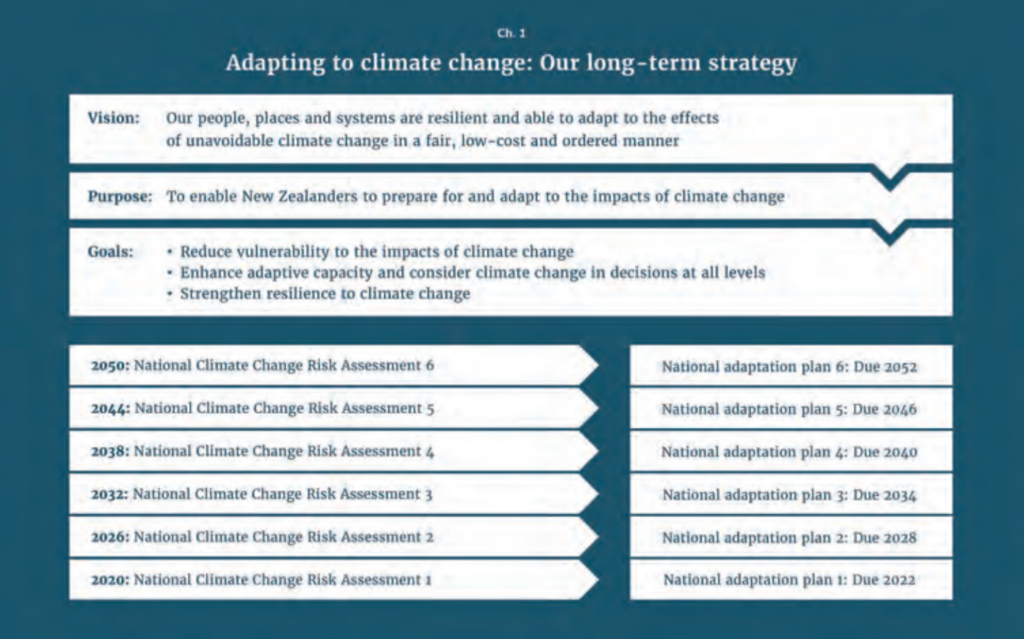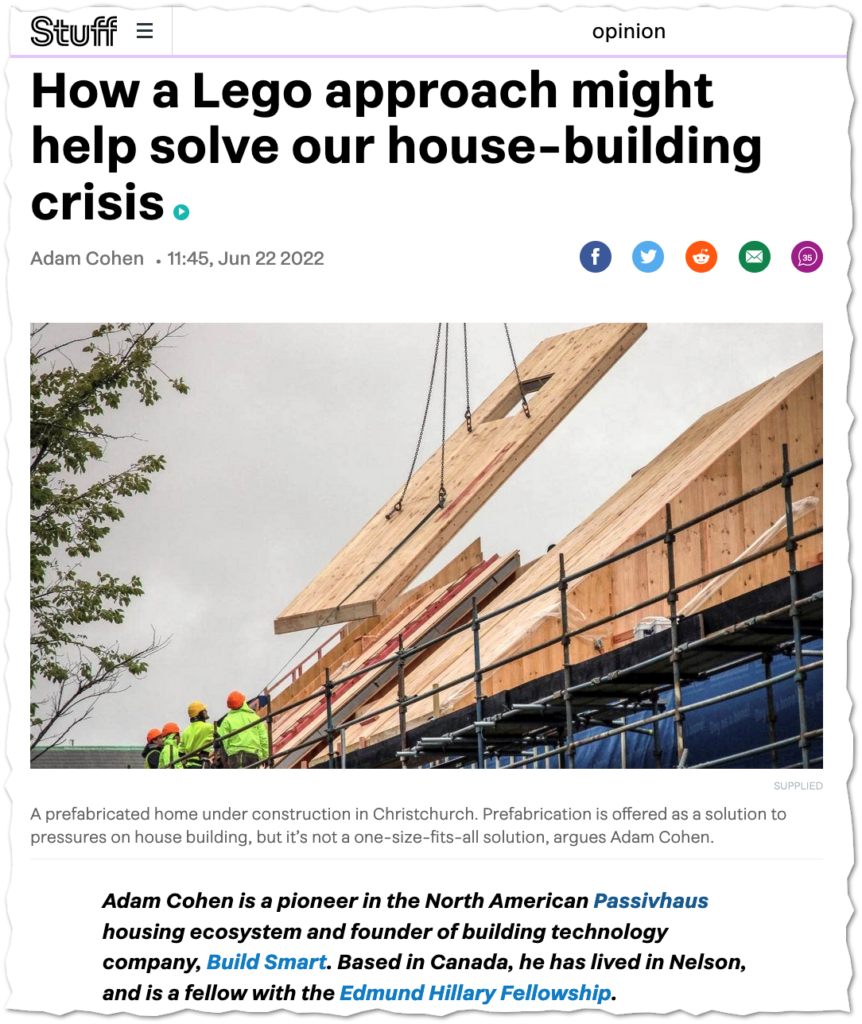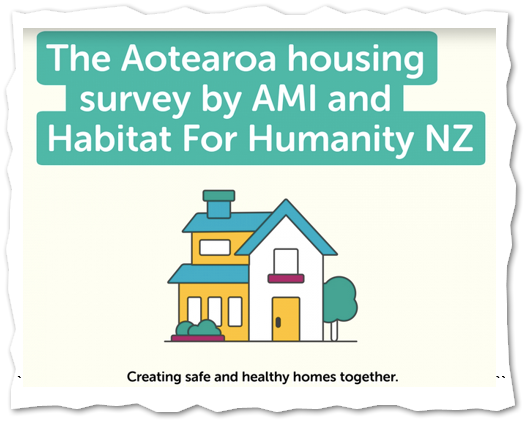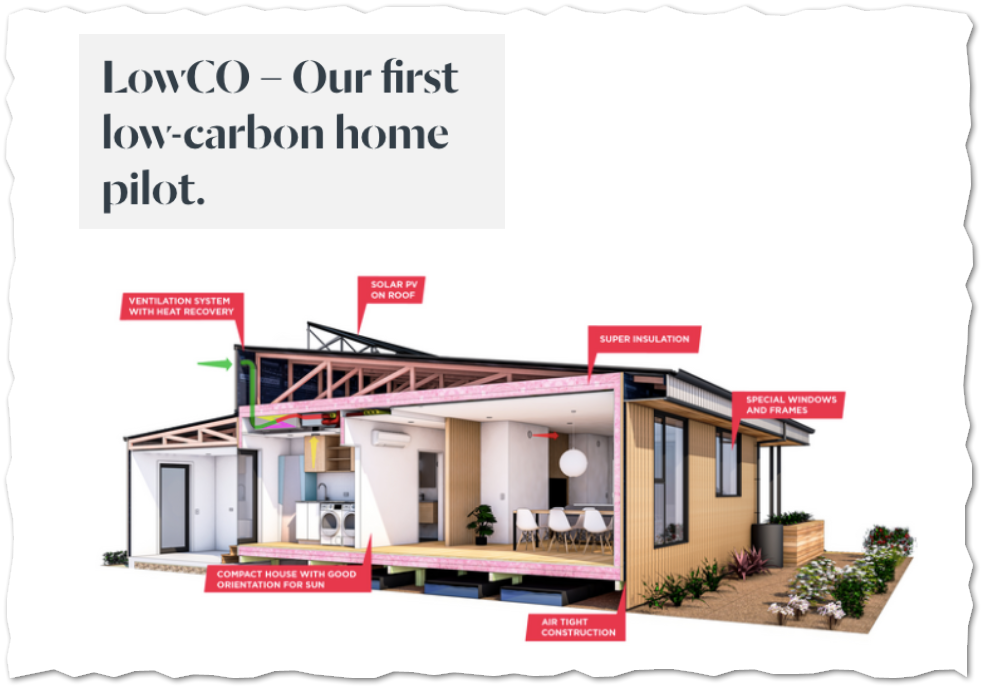“Australia’s energy-efficient houses are commanding premium prices, with buyers spending 17 per cent more to get into a sustainable home.” That’s the Sydney Morning Herald leading its article with a punch. It goes on to say, “Energy-efficient homes attract more buyer interest, sell faster, and fetch higher prices, a new report shows, and the median price for a sustainable house …
Top 10 Climate Risks

New Zealand’s first national adaptation plan is out for discussion. I have to say it reads like a plan to have a plan. Now the real work begins: what we are actually going to do as a society to adapt to climate change? It’s worth reading. I recommend skimming the Executive Summary and then jumping to Appendix 2. As James …
A compelling case for component-based housing solutions

Adam Cohen has a bold and creative vision: carbon-negative, decentralised building systems that will take Passive House performance to provincial New Zealand. He outlines it eloquently in this opinion piece for Stuff, using the instantly recognisable concept of Lego to explain component manufacturing. I’ve known Adam for many years now and he is the real deal. This is no schemer …
Fletcher Living’s Low Carbon homes featured

Fletcher Living’s Low Carbon House featured in an excellent article by Nikki Mandow on Newsroom last month. Sustainable Engineering’s been involved from the beginning and it’s been awesome to bring to reality the team’s vision of homes that can meet the BRANZ carbon budget. Seeing this focus on addressing climate change from such a big player in the construction industry …
Heavy health cost of NZ’s love affair with cars

It’s not just the climate that pays when fossil fuel is burned to transport people and goods. An update to the HAPINZ study on air pollution has, for the first time, measured pollution data from vehicles. The results are alarming: “Social costs from human-made air pollution were $15.6 billion in 2016 In 2016, the social costs from human-made air pollution …
Insulation is not magic

The results of a survey on the state of New Zealand housing are getting plenty of media coverage at the moment, given the grim findings about the scale of the problem (see a summary below). The results suggest several hundred thousand New Zealand homes are cold, damp and expensive to heat. Huddling in a single heated room is routine in …
Bundle heating costs with rent?
Fuel poverty is no joke. Society is only as strong as its most vulnerable members. If the cost of keeping everyone’s house warm—not an allowance measured in dollars but by thermal comfort—was borne collectively it would quickly become apparent that it is cheaper to rebuild or carry out retrofits for deep energy efficiency. The health benefits would be dramatic for …
Fletcher Living gets serious about low carbon homes

Great to see Fletcher Living’s announcement about its Low Carbon initiative. The Sustainable Engineering team has really enjoyed working with Fletcher Living’s people on their vision for low carbon homes that meet the 1.5 degree Celsius carbon budget. Exploring the operational energy and the embodied carbon impacts of many practical, more affordable housing options has been super enjoyable. Fletcher Living …
Historical insulation levels in NZ

Against the backdrop of all the recent noise about increasing Building Code minimum R-values, let’s look back at how the minimum standard (or typical values) have changed over time. This is a question I am asked regularly. The methodology varies a bit over time, but this excellent article authored by Nigel Isaacs while he was at BRANZ is the best …
